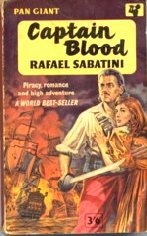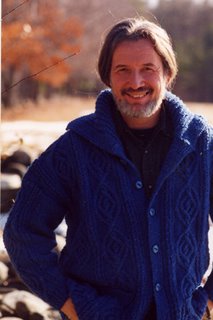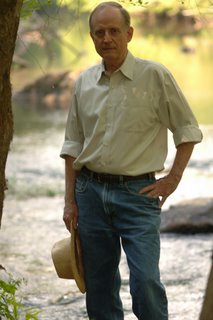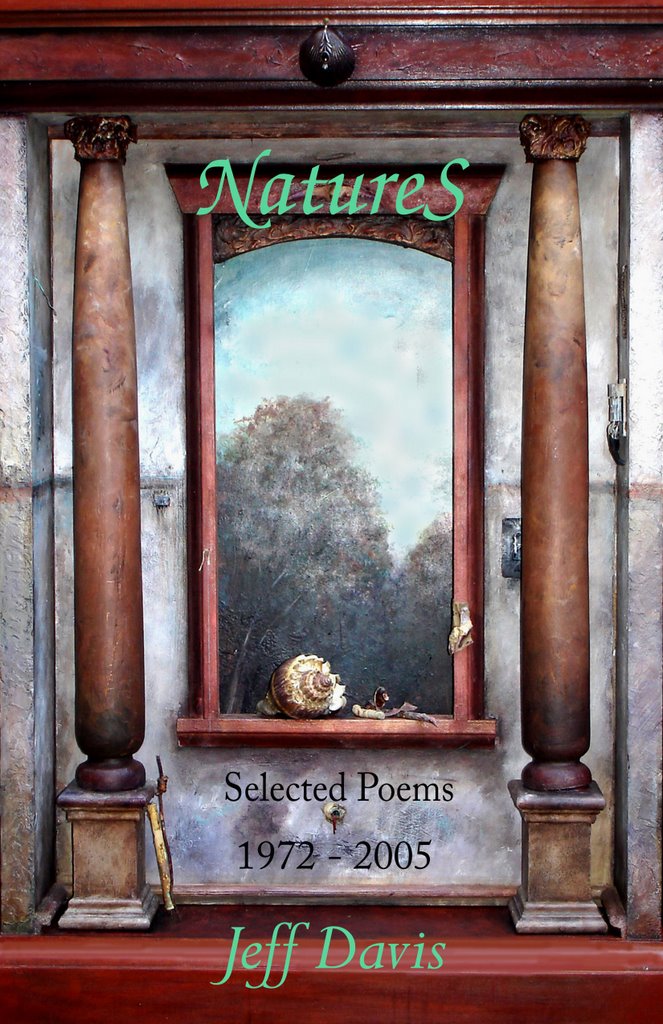
The computer industry has over the years offered livelihood to a number of poets and writers (
Ron Silliman comes to mind), myself included. Working with computers has always seemed to me not so very distant from poetry, notwithstanding that computers, as Fred Chappell once noted dismissively, use a "debased and barbaric language". Fred's doctorate, though, was earned by the compilation of a concordance, which is, after all, essentially a text database, so I wasn't convinced he was standing on much higher ground. Working with computers and working with poetry, at least in those early days, when one worked at the command line if one wanted to do almost anything at all, both required that one use language in special, non-ordinary ways, even if their ends were quite different.
Recent spam has convinced me that there's yet another poet, a procedural poet, or perhaps, even, a group of poets, who, sadly, find themselves working with developers that specialize in mass mailing software - which is to say, software for spam - or the spam mailers themselves. Knowing that I'd get to see the latest efforts by this poet or group of poets has almost been enough to persuade me to enjoy checking and filtering the vast quantities of email which arrive in my inbox each day. Almost.
Most people would never notice the work of this group. Email is nowadays created and sent in what, for lack of a better word, we usually call "layers". Originally, email consisted of just one layer: plain text, your message with no bells or whistles, no flashing lights, not even any images. With the development of HTML for use on the internet, another type of mail became possible, and mail programs quickly evolved to take advantage of it. Most mail clients, like Microsoft's Outlook Express, can handle both type of email. If there's an HTML layer, though, the email program will display it, and ignore the text layer, if there is one. It's in this text layer, which most people never see, that this group of procedural writers works.
The email arrives with innocuous subject lines: Photos, Pictures, Is It Funny, New Schedule. The HTML layer contains the usual junk, ads for Viagra, Cialis, and the like (though I found one recently that purported to be from a mortgage lender), but the text layer contains procedural compositions that have nothing to do with that content. Here's an example:
Is It Funny, from "Bobby Harrison" , received 10 November. Big equate several. Begin mean century next three first, spend.
Metal paint his mile distant, fire. Written table will. Tell
produce, look. Early class car. Saw base, six how, event. Find
dictionary, flower night product must meet. Found son part often
beauty. Speak fish picture mind and dog can. Subject beauty,
push half please thing, energy. East half stead, found, usual.
Step cold, page.
Elliptical, of course, debased and barbaric, perhaps, but ... interesting.
Hard to divine the procedure applied here, partly because the work is so fragmentary that we can't identify the source text. This past summer, though, this author/group was working with a procedure that left enough of the text to locate its source in the work of Raphael Sabatini, author of Captain Blood, Scaramouche, and a host of other titles, mostly romances. I didn't record the subject lines or senders for that series, or make note of the HTML content, but here's a piece from that series:
that was ascending the companion. So engrossed had they been thatBy my leave, you'll remain awhile, the Captain ordered him.Spaniard fell back before him with suddenly altered countenanceMr. Blood got between the day-bed and the troopers.should thus come upon the Arabella at a time when, separated frombegan to speak. In a muted voice and briefly - much more brieflyof now or later.this gun will fire the answer. I make myself clear, I hope?and in the latitude into which Lord Julian had strayed this was aBut now it was observed that they were empty, save for the men whobear that in mind, Lord Julian. And now, ye greasy hangman, steptowards it, I confess; and you've shown your quality in doing it.Captain Blood ordered her crew to take to the boats, and landthem. They went in rags, some almost naked; they dwelt in squalor,he perceived - and only just in time - that he had best tread warily.the sound heart of a boy, and in that heart much love for Peter
The enjambed words "thatBy", "troopers.should", "him.Spaniard" reveal the seams of the procedure, show us where it broke the source text. These pieces arrived over a period of several months; I first noticed them on June 16th, and they stopped arriving, I believe, in August. Altogether I collected almost a hundred of them. For me, these piece have more resonance than the more recent work, and I consider them the high point, so far, in our anonymous poet's career. I hope one day he or she will find avenues of publication more appropriate to his/her talents. In the meantime, you might want to get an email program that reveals what's sometimes hidden in all that spam.
Labels: Fred Chappell, poetic procedures, poetics, Ron Silliman
 Busy tonight finishing the final (I hope) copy editing of a book of poems that will appear early next year, but I wanted to post a quick note about a big event coming up at the Center. This fall marks the fiftieth anniversary of Allen Ginsberg's first reading of his poem "Howl" in San Francisco. It was a reading that electrified its audience and proved to be a tipping point of sorts in our country's cultural history, one that changed the fifties, and helped create the cultural transformation of the sixties and seventies. The evening will feature the usual fabulous crew of local poets and readers, and, as our very special guest, Boston poet Richard Cambridge. Richard's a long-time activist in addition to being a fine poet - winner of the Allen Ginsberg Prize, in fact. It should be a memorable evening.
Busy tonight finishing the final (I hope) copy editing of a book of poems that will appear early next year, but I wanted to post a quick note about a big event coming up at the Center. This fall marks the fiftieth anniversary of Allen Ginsberg's first reading of his poem "Howl" in San Francisco. It was a reading that electrified its audience and proved to be a tipping point of sorts in our country's cultural history, one that changed the fifties, and helped create the cultural transformation of the sixties and seventies. The evening will feature the usual fabulous crew of local poets and readers, and, as our very special guest, Boston poet Richard Cambridge. Richard's a long-time activist in addition to being a fine poet - winner of the Allen Ginsberg Prize, in fact. It should be a memorable evening.


